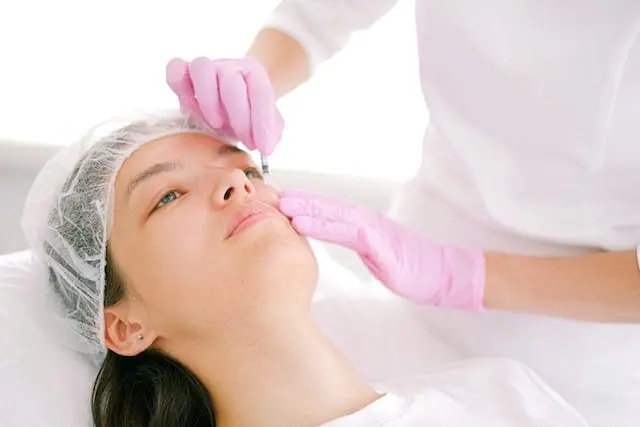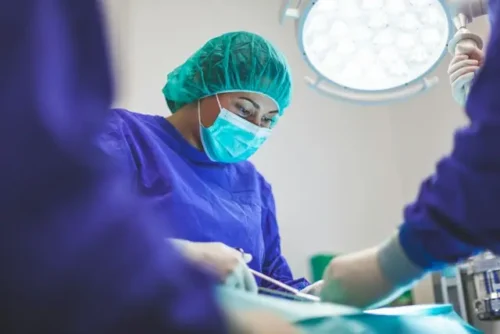
Frequently Asked Questions About Cosmetic Surgery
Perhaps you have been considering a particular cosmetic surgical procedure for some time and are currently conducting research before you book your initial consultation for cosmetic surgery.
Conversely, maybe you have always been against cosmetic procedures. Especially those that are entirely intended for aesthetic and more superficial results. Yet, you are still intrigued as to how your life could change as a result.
Regardless of your motivation, this article is here to help, as here are six of the more common frequently asked questions about cosmetic surgery with simple and helpful answers attached.
1. Who is Eligible for Cosmetic Surgery?
Now, you may well be wondering if that, should you decide to go ahead with cosmetic surgery (either for a health reason or else because you are simply highly unsatisfied with one part of your body or the other). If you will actually be accepted for the procedure.
As you would expect, there are so many different forms of cosmetic surgeries. So whereas one candidate would be an ideal patient for one treatment, they may well be entirely unsuitable for the next.
Having said that should you be able to confirm each of the following core eligibility checks. Then you stand a good chance of being accepted:
- You have a specific aesthetic issue rather than a general dissatisfaction
- Your expectations after surgery are sensible and realistic
- You do not smoke
- You are well-informed about the procedure
- You are not suffering from any diagnosed mental health disorders
2. Would Everyone Know You Have Had a Procedure?
Again, this all depends on the type of cosmetic surgery you are electing to have and where the area being treated is located on the body.
For example, if you are looking into liposuction to reduce excess fat on your hips and thighs, once your body has healed from the procedure. It would be entirely up to you when and where you reveal your new trimmer figure.
Conversely, with other cosmetic procedures, such as in the case of a rhinoplasty, your nose will not only be instantly improved in terms of the shape, and structure. And overall appearance but there may well be residual bruising for longer than average afterward.
The best way to see if having your nose surgically altered is the right decision for you, as ultimately you are the only one you need to please, is to speak to a reputable and renowned rhinoplasty surgeon in your local area.
Remember, you should only ever be opting to go down the route of cosmetic surgery. If the primary person you are doing it for is yourself, and what is more, if one or more of your loved ones seem to be against your decision. Gently remind them that it is your body and you are therefore entitled to do what you desire.
3. What Are the Key Risks Associated with Cosmetic Surgery?
It would also be more than understandable should you be wondering as to what the risks are associated with cosmetic surgery. And as previously touched upon, as all operations are different, so too are the varying risk factors.
However, with each surgery, regardless of the area of the body concerned, the following are the more commonly associated risks and side effects. Which one individual may experience in abundance, whereas another will experience none:
- Issues regarding bunched blood vessels, which require additional surgery
- A temporary numbness or decreased sensation in the area
- A risk of developing an infection (all steps are taken to prevent this)
- Risks involved with general anesthesia
- Wounds that are slower to heal than others
- Dissatisfaction with the appearance requiring further surgery
4. How Can the Appearance of Surgical Scars Be Reduced?
Next, as any form of cosmetic surgery, however minor or major involves altering the appearance of the skin on one or more areas of the body in some way. It is unavoidable that you will be left with some form of scarring (however minimal).
Luckily, there are a tremendous collection of ways and means of reducing the appearance of scars from surgery, whether that procedure is of a cosmetic nature or not. With one of the most effective and affordable being topical treatments such as specialized ointments and creams.
Other methods include a short course of prescribed steroid injections, which can reduce both the depth and the level of inflammation of the scar, laser scar therapy to stimulate collagen. And encourage the new skin to grow, and silicone gel that can help hydrate the area.
5. What is Recovery from Cosmetic Surgery Like?
An especially pertinent question for those who have already scheduled their cosmetic surgery, many people wonder what recovery will be like. Once again, it all depends on two major factors: the nature of the surgery and the individual’s health.
In addition, as every human is entirely different when it comes to the threshold of pain. They can comfortably (or at least semi-comfortably) tolerate it; this often has a direct impact on the time it takes for the surgery to be completed and also the recovery time, both inside the hospital and at home.
The key is to let your body tell you when you are not doing enough. Or, conversely, if you are pushing yourself too far and too quickly. And of course, should you have any concerns relating to anything to your aftercare program, do not hesitate to contact the surgery where the procedure was performed.
6. How Does Retouching Work & Will You Need It?
Finally, the phrase ‘surgical retouching’ simply refers to revisiting the surgery at a later date. Either to make adjustments or else due to a minor complication that has affected the finished result.
It is, you will be pleased to know, incredibly rare that a complication occurs within a plastic surgery procedure. Especially if you have chosen a renowned, established, and experienced surgery and surgeon who has a rich. And successful history with your own operation and similar.
However, a surgical retouching procedure may be offered if something unexpected happens during the procedure. Or if you experience a slow and painful healing process.


